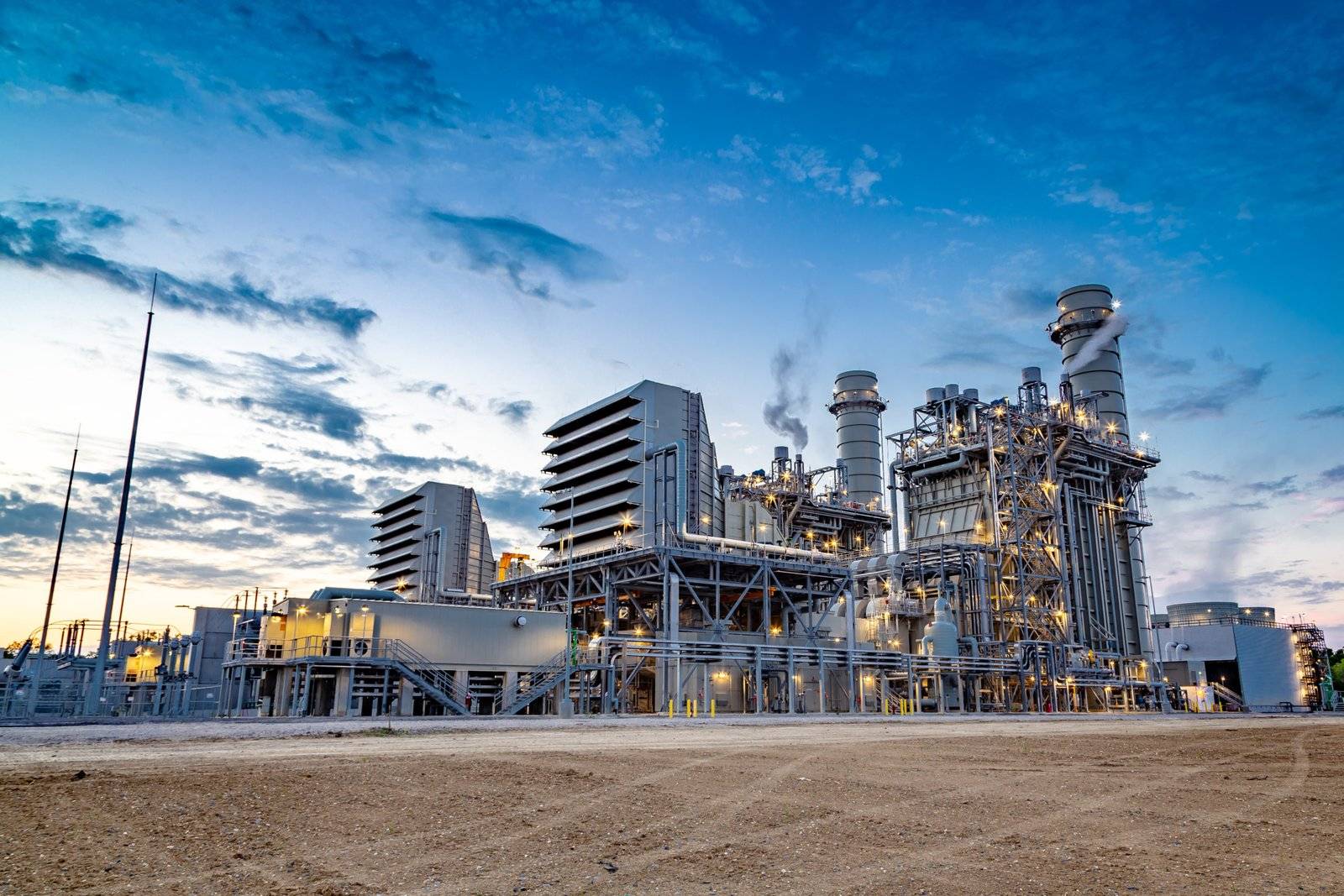Georgia is a magnet for data centers and other cutting-edge industries, but massive electricity demand is clashing with America’s High-Tech Goals.
ATLANTA—Bill Thomson needs electricity immediately. The issue is that many of the other business people flocking to Georgia are doing the same thing.
Thomson is in charge of marketing and product management at DC Blox, which has lately built a network of data centers in midsize cities across the rapidly expanding Southeast. The organization has recently set its sights on Atlanta, the region’s prospective capital, joining a slew of digital and industrial companies moving to the state.
Businesses competing for a piece of one of America’s hottest markets often share two qualities. One is that they represent a growing US economy powered by modern manufacturing, cloud computing, and artificial intelligence. The other is that they promise to use a great quantity of electricity.
That combination means Georgia’s success in drawing this development comes with a cost: power is a major cause of conflict. Companies and governments’ clean-energy aspirations are colliding with the need for projects to get underway quickly. So far, climate advocates are concerned that growth will lead to increased use of fossil fuels.
Georgia Power, Georgia’s principal utility, has increased its demand predictions sixteenfold and is moving ahead with a contentious plan to burn additional natural gas. Critics argue that it will result in increased costs and unneeded carbon emissions for decades. Some businesses are trying to get one-of-a-kind renewable-energy agreements to fuel their growth.
Data centers are one of the main sources of interruption. As more people spend their waking hours online and companies automate everything from manufacturing processes to fast-food drive-throughs, the facilities are growing rapidly in size. Power is needed for all that computing, and companies like DC Blox need to lock it in as soon as possible.
Other centers of the emerging American economy are experiencing similar dilemmas, as utilities in Tennessee and the Carolinas anticipate their unanticipated increases in load growth. A study of federal fillings conducted by the consulting firm Grid Strategies indicates that during the next five years, the United States’ electricity consumption is expected to increase by 4.7%. From a prior estimate of 2.6%, that is an increase.
The forecasts come after efficiency advancements kept electricity demand essentially steady over the last 15 years, allowing the power sector to reduce emissions primarily through coal-plant closures.
“We haven’t seen this in a generation,” said Arne Olson, a senior partner at the consultancy Energy and Environmental Economics. “As an industry, we’ve almost forgotten how to deal with load growth of this magnitude.”
Georgia’s take on Power Deficiency
For states like Georgia, the fear is that they will miss out on once-in-a-generation opportunities. Wall Street is salivating over an artificial intelligence-fueled tech boom, while Washington is investing billions of dollars in domestic manufacturing.
The added wrinkle is that it is taking place at a time when many sectors of America, including corporate America, are attempting to transition away from fossil fuels.
“These companies all have clean-energy goals,” said Patty Durand, a critic of Georgia Power who is running for state utility regulator. “Those goals are at risk if Georgia Power gets what it wants.”
The Peach State’s energy quandary arises from a level of economic vitality that many competitors would envy. Its growth has continuously surpassed the national average. Georgians have a lower unemployment rate than the national average, and their salaries tend to rise more quickly.
State and local economic development teams have waited to open major firms by advertising generous financial incentives. The largest airport in the United States, ports, and rail connections may all serve distant customers.
The commissioner of the Georgia Department of Economic Development, Pat Wilson, has noted that discussions with immigrants are increasingly centered around energy. Officials claim the state is well-positioned for long-term growth, pointing to the recent expansion of Plant Vogtle, the largest nuclear power plant in the United States.
“We have a utility partner to make sure you can meet your energy needs on day one,” said Wilson.
Three elements must be accomplished for businesses like Aurubis, a German metals corporation that is building a recycling plant outside of Augusta: it has to be reliable, affordable, and sustainable.
When compared to Europe, US prices for energy are significantly lower. This is fantastic news for Aurubis, as they use mega machinery to melt the garbage, eliminate copper from other components, and destroy old circuit boards and electrical cables.

The company also has lofty aims for reducing emissions at its power-intensive smelters. Aurubis’ $820 million Georgia project will generate up to 31 megawatts of electricity, enough to power thousands of homes.
“Not every project itself has to reduce carbon emissions,” said David Schultheis, president of the Georgia facility. “But the overall set of projects has to guide us there.”
Across Europe, the corporation has worked toward this goal by increasing its usage of wind and solar power across a portfolio that includes Belgium and Bulgaria. Schultheis cited Plant Vogtle, which can be seen from 12 miles away, as an example of reliable electricity.
Companies prefer nuclear power facilities because they create carbon-free electricity and, unlike wind and solar power, are not weather-dependent. However, the predicted power needs of new firms in the state much outstrip the expected production of the plant’s recently built reactors, the second of which began operations last month.
Despite Aurubis’ proximity to Vogtle, which Georgia Power co-owns, it is difficult to trace the source of electricity that powers the substation on the German company’s adjoining property. Schultheis instead bases his carbon accounting on the utility’s total electricity generation, implying that the Georgia plant will increase Aurubis’ carbon footprint.
Companies value nuclear power plants because they generate carbon-free energy and, unlike wind and solar electricity, are not weather-dependent. However, the predicted power requirements of new firms in the state much outstrip the expected production of the plant’s newly installed reactors, the second of which went online last month.
Despite Aurubis’ proximity to Vogtle, which is co-owned by Georgia Power, it is difficult to trace the source of electricity that powers the substation on the German company’s adjoining property. Schultheis, on the other hand, bases his carbon accounting on the utility’s overall power generation, which means that the Georgia facility will increase Aurubis’ carbon footprint even more.
To close the deficit, the business proposed adding battery storage, purchasing power from fossil-fuel-burning plants in Mississippi and Florida, and developing three new gas-fired turbines in Georgia.
Since then, the Southern Co. subsidiary has sparred with renewable-energy-minded entities ranging from local municipal governments to the Sierra Club and the Pentagon.
Opponents claimed that the utility should speed demand-side solutions, such as allowing customers to reduce energy usage based on cost. Others recommended a more aggressive use of solar electricity and batteries, or so-called “virtual power plants” that allow solar panel owners to sell energy back to the grid.
Georgia Power believes that adding gas is critical to providing steady power and promptly scaling up electricity during peak demand periods on the hottest days of summer and the coldest days of winter. This is especially important given the utility’s phased retirement of coal-fired plants.
Georgia Power claims that the state has attracted so many power consumers that new investments will lower ratepayers’ prices.
“We anticipate that we will not need to raise rates to cover the costs of these additional resources,” said Aaron Mitchell, the company’s vice president of pricing and planning.

Some Georgians are wary, noting that utilities have previously overestimated demand increases. Power companies have a financial incentive to pursue capital projects, opponents argue, and overbuilding today risks burdening ratepayers with assets with decades-long shelf lives.
The state’s recent energy development has likewise been difficult. The Georgia Power-led project to expand Plant Vogtle, the first nuclear expansion in decades, cost more than $30 billion and was years behind schedule.
The Georgia Center for Energy Solutions reports that since the project’s inception in 2007, the 12-month moving average of residential power costs for the utility’s consumers has increased by 68%. That exceeded both inflation and cost increases for industrial and commercial customers.
Price pressures and climate concerns have prompted localities like suburban Atlanta’s DeKalb County, which has vowed to reduce emissions, to petition regulators for more active control of the investor-owned utility. Ted Terry, a DeKalb County commissioner, expressed concern that the state is attempting to attract 21st-century firms while following a 20th-century energy strategy.
The state’s energy market “is not working for all of us,” Terry stated. On April 16, regulators authorized much of Georgia Power’s plan.
The tension hasn’t slowed businesses’ rush to the state.
Google has been operating data centers in Georgia for more than two decades, gradually increasing its footprint. In 2021, Microsoft will create a new data center area in the United States, centered in Atlanta. According to an Amazon Web Services representative, the company recently purchased land in Georgia and is currently exploring potential server-farm locations.
All three companies buy large amounts of renewable energy to power their sites around the world. All three are also members of the Clean Energy Buyers Association, a trade association that encourages utilities like Georgia Power to go green.
Priya Barua, the organization’s senior director of market and policy innovation, said the added difficulty in much of the Southeast is that traditionally regulated power markets sometimes give firms fewer opportunities to shop around for wholesale electricity.
Their options for obtaining sustainable energy are more constrained, she claimed.
As corporations put greater pressure on regulators and developers to make agreements with independent power providers, some analysts think things might change. In a recent planning update, Georgia Power announced that it would collaborate with trade associations such as Barua’s to investigate the possibility of commercial and industrial clients in the future developing or hiring out their own renewable energy projects.
These arrangements are now limited to nonprofit electrical cooperatives that mostly service rural communities. For instance, as part of a larger agreement to power data centers, Instagram owner Meta teamed up with solar company Silicon Ranch and a cooperative in Georgia.
Even in a more competitive market, though, most businesses, like DC Blox, the data center operator constructing two sites in different Atlanta suburbs, could still be unable to afford those offers.
The company was established in 2014 and built its first data center in a former Chattanooga paper mill. One megawatt of power was used. Since then, DC Blox has expanded its network to include Myrtle Beach, South Carolina, and Huntsville, Alabama, and has leased space to manufacturers, colleges, and local governments.
The startup is currently looking for big-tech customers. The largest of the two Atlanta-area locations may generate up to 300 megawatts.
“The smart states and smart utility commissions are going to figure out how to do this because this isn’t going away,” said Thomson, the DC Blox CEO. “AI is coming next.”
Executives at DC Blox see themselves as contributing to Atlanta’s transformation from a logistics center to the Southeast’s digital powerhouse. Nowhere is this more evident than in Douglas County, located west of the city and the most desirable corner of the region’s data center market.
Corrections & Amplifications in Power
U.S. power usage is projected to expand by 4.7% over the next five years. An earlier version of this article incorrectly said usage is projected to expand by 4.7% annually over the next five years. (Corrected on May 12)
Local leaders, notably Chris Pumphrey, president of the public-private Elevate Douglas Economic Partnership, began looking for data centers approximately ten years ago. While the facilities have few full-time staff, the operators and renters pay property and sales taxes into the state coffers. The new business also reduced truck traffic to the area’s warehouses, which benefited Douglas County.
“At that period,” Pumphrey stated, “there wasn’t this significant concern about energy.”
Douglas County now hosts current or upcoming data centers from Google, Microsoft, DC Blox, Flexential, and Switch. Pumphrey is looking forward to the payout as hundreds of construction workers etch concrete structures into the slopes of hills like fortresses.
News source
wsj.com

Mike Neon is a seasoned journalist specializing in United States news, known for his comprehensive coverage of national affairs and current events. With a career spanning 5 years in journalism, Mike has established himself as a reliable source of accurate and insightful reporting. His articles delve deep into political developments, social issues, and cultural trends shaping the United States today. Mike Neon’s dedication to providing balanced perspectives and in-depth analysis ensures that readers stay informed about the latest developments that impact the nation.







